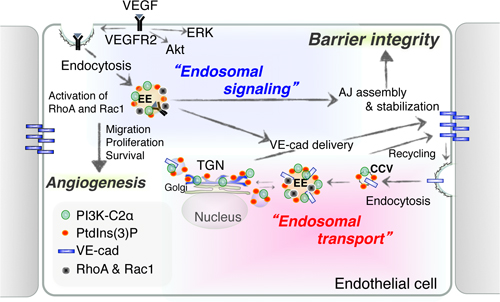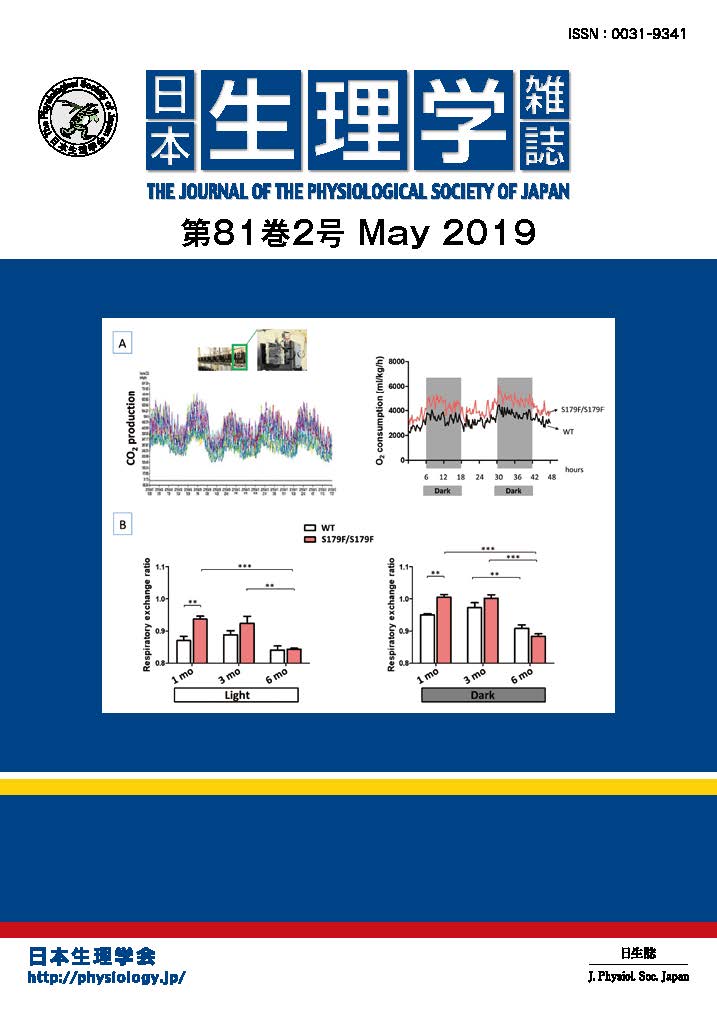Phosphatidylinositol 3-kinase (PI3K) family regulates diverse cellular functions; while class I PI3Ks and class III Vps34 are well-characterized, the physiological roles of PI3K class II, which comprises C2α, C2β and C2γ and exclusively produces phospatidylinositol 3-phosphate (PtdIns(3)P), remain largely unknown. Global C2α-null mice and endothelial cell (EC)-specific C2α conditional KO mice showed embryonic lethality due to defects in sprouting angiogenesis and vascular maturation. In cultured ECs, short interfering RNA (siRNA)-mediated knockdown of C2α, which is localized on endosomes, clathrin-coated vesicles and trans-Golgi network, resulted in decreased PtdIns(3)P-enriched endosomes and impaired endosomal trafficking. Consequently, endosomal delivery of VE-cadherin to EC junctions was disturbed, leading to impaired VE-cadherin assembly with defects in cell migration, proliferation, barrier integrity, and tube formation. C2α knockdown also impeded cell signaling including VEGF receptor-2 internalization and small G-proteins, RhoA, Rac1 and Rap1, activation on endosomes, but not Akt and ERK. These effects of C2α knockdown were C2α-specific because they were not mimicked by knockdown of other PI3Ks including p110α and β, C2β or Vps34. C2α haplo-insufficient mice were alive, but exhibited defective postnatal angiogenesis and vascular barrier integrity with greatly augmented susceptibility to anaphylaxis and a higher incidence of dissecting aortic aneurysm formation on angiotensin-II infusion. Thus, C2α plays a crucial role in vascular formation and barrier integrity, and represents a new therapeutic target for vascular diseases.
Yoshioka et al., Endothelial PI3K-C2a, a class II PI3K, has an essential role in angiogenesis and vascular barrier function.
Nature Medicine 2012 in press.
Department of Physiology, Kanazawa University School of Medicine























